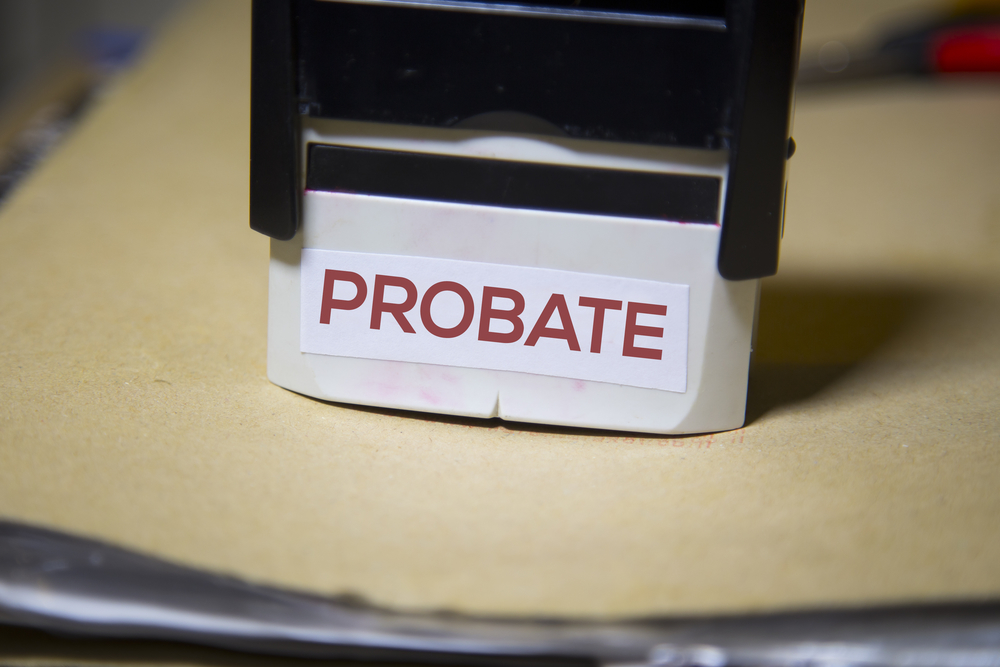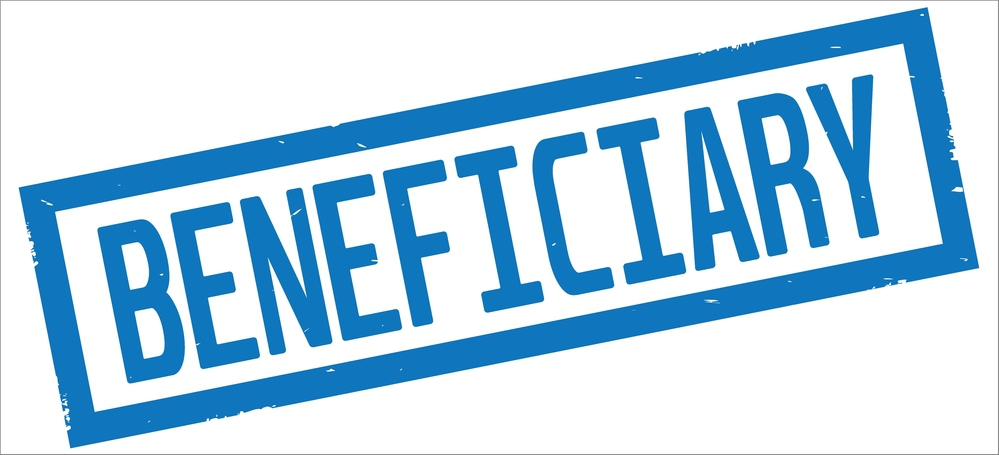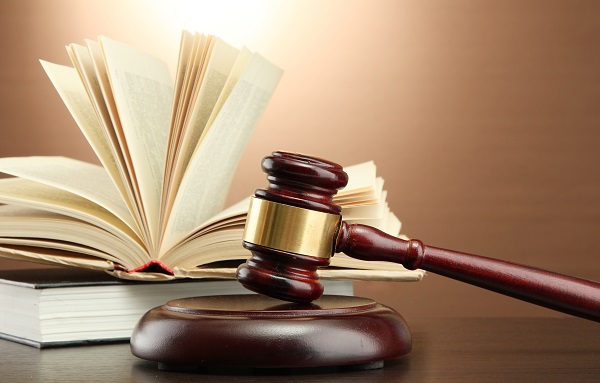
by Bill Miller | Dec 5, 2018 | Probate
Ella passed away while living in New York, but she owned several rental properties in Alabama. Jesse lived and died in Texas but docked his fishing boat in Alabama. Ella and Jesse have something in common: their estates will have to file ancillary probate in Alabama.
What Is Ancillary Probate?
When someone dies, their estate goes through probate in the state they were living in at the time of death. However, many people own property in more than one state. That’s where ancillary probate comes in. It’s a probate proceeding held in addition to the original proceeding.
How Does Probate Work?
The personal representative files the decedent’s Will to start the probate. If there’s no Will, an interested person files an application to be appointed administrator. The court appoints the personal representative, who begins to gather the decedent’s assets and claims against the estate. At the end of the probate proceeding, the personal representative distributes the decedent’s probate assets (after paying valid claims) to beneficiaries according to the Will.
Why Is Ancillary Probate in Alabama Necessary?
The probate court in the home state has no jurisdiction over property found in other jurisdictions. Depending on the assets and how they were held, the estate may have to file additional probate proceedings to dispose of property in the state in which the decedent did not reside.
For example, using the example above, Ella’s estate will be probated in New York. She lived there and it was probably her state of domicile. After her personal representative originates probate in New York, he or she will file for ancillary probate in Alabama to deal with the transfer of her Alabama property.
Can Ancillary Probate Be Avoided?
Sometimes. For example, had a revocable living trust owned the property that became probate estate assets, it probably would have transferred to heirs automatically after the grantor of the trust passed away.
Likewise, property may be titled in such a way that it does not become a probate asset. Jointly owned property may pass directly to the surviving owner without the need for probate.
Probate, trust and property ownership laws are complicated. Talk to an attorney as soon as possible if ancillary probate is needed, or if you want your family to avoid having to file an ancillary proceeding.
Learn More About Ancillary Probate in Alabama.
The attorneys at Miller Estate and Elder Law know how to help you with estate planning and probate, whether it’s an original proceeding or an ancillary proceeding. For a free consultation, contact us at 256-472-1900. Miller Estate and Elder Law is now located at 818 Leighton Avenue in Anniston, but we serve clients in Gadsden, Hoover, Talladega, Vestavia Hills, and surrounding areas.

by Bill Miller | Nov 29, 2018 | Estate Planning, Probate
One of the many benefits associated with estate planning is that you get to choose who gets your stuff after you are gone. However, that generally only works if you have actually done an estate plan! Someone who passes away without leaving a valid Alabama Will has lost the opportunity to voice their final wishes. Don’t let the state use Alabama intestacy succession to choose your heirs. A simple Will or trust lets you make all the decisions beforehand.
Intestacy and Probate
Someone who dies without leaving a valid Will is called “intestate.” Whether there’s a Will or not, the deceased person’s estate still has to pass through probate in most cases. However, depending on the size of the estate and family circumstances, probating an intestate person’s estate can be more complicated and more expensive when there’s no Will.
And your probate assets will be distributed according to state law, not the way you would have wanted.
Alabama Intestacy Succession Law
Property in an intestate estate pass to heirs based on Alabama law. Two of the factors that determine “who gets what” are:
- Whether the decedent was married, and
- Whether the decedent had any descendants.
Intestacy succession in Alabama provides for the estate’s distribution as follows:
| If decedent is survived by: |
Then probate assets pass: |
| a spouse, but no children |
entirely to spouse |
| a spouse, no children, parent or parents |
first $100,000 to spouse, then one-half of the rest |
| a spouse, children of decedent and spouse |
first $50,000 to spouse, plus one-half of the balance |
| a spouse, children of decedent but not surviving spouse |
one-half of the estate to the spouse |
| children of decedent |
in an amount based on degree of kinship to decedent |
| parents, but no spouse or children |
equally to the parents |
| no spouse, children, or parents |
to other children of parents (siblings) |
| no spouse, children, parents, or siblings |
to grandparents or children of grandparents based on degree of kinship. |
Not Having a Will Just Makes Everything More Complicated
Intestacy succession does not apply only when the deceased person didn’t leave a valid Will. In fact, a decedent’s probate assets that are not addressed in the Will may pass to heirs according to intestacy succession laws. It pays to make sure your Will is valid and up to date.
At Miller Estate and Elder Law, we make it our business to put our client’s needs first. We assist our clients in making legal decisions regarding their business interests. contact us at 256-472-1900. Miller Estate and Elder Law is now located at 818 Leighton Avenue in Anniston, but we serve clients in Leeds, Gadsden, Hoover, Talladega, Vestavia Hills, and surrounding areas.

by Bill Miller | Oct 29, 2018 | Probate
We all own something. Whether it’s the family china or a large retirement account or a boat, your property will be transferred to a new owner after you pass away. Most if not all of your assets will pass to your heirs through probate, unless you make other arrangements. Yes, there are ways to avoid probate in Alabama.
What happens during probate?
Someone will present the original Will to the probate court. This can be done by an executor, an heir named in the will, or any person interested in the estate, or anyone who has custody of the Will.
If there’s no Will, then someone will petition the court to be appointed as executor or personal representative of the estate. The person who is appointed will administer the estate but will not have the guidance of a Will.
The personal representative or executor will gather and manage the probate assets, notify creditors and assess creditor claims, pay valid claims against the estate, and distribute remaining assets to the appropriate heirs.
Why would I want to avoid probate?
One reason is that the heirs may have to wait weeks or months to receive their inheritance. Some estates do not fully settle for a year or more. This is not only frustrating but can leave your family short of cash to live on.
Probate proceedings can be expensive also. You will be paying an attorney, court fees, and other expenses that may occur.
Finally, most probate records are available for public review.
What can I do to avoid probate?
Fortunately, there are ways to avoid putting your family through a probate proceeding.
- Property Titles. You can title jointly owned property so that it passes directly to the other owner(s) after you die. They may have to fill out some paperwork but generally will not have to go through probate.
- Trusts. When you transfer ownership of assets to a trust, you set up a mechanism whereby those assets may pass directly to your beneficiaries.
- Beneficiary Designations. Most financial accounts and insurance policies offer the option of naming beneficiaries. After you pass away, the money remaining in the accounts typically does not become part of the probate estate. Instead, the financial institution typically gives the money directly to the named beneficiaries.
Consult with an Alabama Estate Planning Attorney.
Should you wish to know more about how to avoid probate in Alabama, the attorneys at Miller Estate and Elder Law have the experience you need to get the estate plan you deserve. Contact Miller Estate and Elder Law at 256-251-2137 to schedule an appointment or fill out our convenient Contact Form. We help clients in Anniston, Talladega, Birmingham, Gadsden and surrounding communities. Get a free copy of our book on the Basics of Estate Planning in Alabama.

by Bill Miller | Sep 21, 2018 | Estate Planning, Probate
Your Last Will and Testament is one of the most important documents you will ever sign. Within that document, you will name someone to act as your estate’s executor or personal representative. Your personal representatives will make decisions and take actions that affect your loved ones. Knowing what to look for in a personal representative may make your decision a little easier.
A Personal Representative Is a Fiduciary
Fiduciaries are people or entities who are trusted to handle property for someone else’s benefit. Banks are sometimes called fiduciaries.
Responsibilities of an executor or personal representative include:
- Gathering and protecting estate assets,
- Managing estate assets, and
- Distributing property according to the terms of the Will or the laws of the State of Alabama.
Because of the importance and sensitivity of these tasks, it is important to consider individuals carefully before deciding on an executor.
A Personal Representative Is Prudent
Someone who is prudent acts with care and thought for the future. Alabama state law notes that a personal representative may take a wide range of actions on the decedent’s property, including:
Voting on stocks, executing and filing deeds, receiving and retaining assets, insure estate assets, borrow money, deal with contracts and creditors, pay taxes, and so on.
A Personal Representative Is Diligent and Detail-Oriented.
Gathering and maintaining assets requires someone who is hardworking and who sweats the details. Even small estates need someone who will find all the assets, no matter where located. And the family of the decedent needs someone who can protect and maintain assets of every type. Insurance may need to be purchased, licenses and registrations obtained, and investments monitored.
A Personal Representative is Loyal
As fiduciaries, personal representatives owe a standard of care to the estate, to you, and to your family. Look for someone who is willing and able to honor the preferences set forth in your Will.
Personal Representatives Are Patient and Diplomatic
Disagreements and disputes among family and heirs may turn into a family feud during probate. It’s not easy, but a personal representative must have the patience of a saint sometimes when dealing with distressed heirs and family members. If this sounds like your family, choose a personal representative with conflict resolutions skills.
Talk to an Experienced Alabama Estate Planning Attorney.
The attorneys at Miller Estate and Elder Law help clients like you make thoughtful decisions about their estate plans. For a free consultation, contact us at 256-251-2137 or use our convenient Contact Form. Although we’re located in Anniston, we also help clients in the Birmingham, Gadsden, Hoover, Talladega, Vestavia Hills, and surrounding areas.

by Bill Miller | Aug 24, 2018 | Probate
Alexander named his oldest son, Caleb, the executor (also known as personal representative) of his estate. When Alexander passed away last month, Caleb was left grieving and wondering, “What does an executor or personal representative do?” His father’s estate planning attorney was able to shed some light on the subject.
Gather Assets
As personal representative, Caleb is responsible for finding and protecting all of his father’s property. Anything Alexander will become estate assets to be used for paying claims and distributing to heirs.
Sometimes the decedent, Caleb’s father in this case, maintain accurate, up-to-date records. This makes the personal representative’s job much easier. Whether easy to find or not, though, Caleb has to find every asset his father owned.
In addition to finding the assets, the personal representative must protect them also. This may require the estate to purchase licenses, register vehicles, and buy insurance. Care should be taken to avoid wasting or spoiling assets that require special attention.
By the way, “assets” may include: stocks, bonds, promissory notes, partnership and business interests, life insurance policies payable to the estate, household goods, personal property, artwork, jewelry, china, silverware, valuable collections, vehicles, safe deposit boxes, and real estate.
Find and Pay Valid Claims
The personal representative is responsible for notifying creditors of the decedent’s death. There are two ways to do this:
- Publishing a notice in a newspaper with general circulation in the county in which probate was filed; and
- Sending written notice to all known creditors.
Creditors have to submit their claims within a certain time period or they may forfeit their claim.
Common debts and liabilities include: notes, mortgages, accounts payable, and unpaid taxes.
Finalize the Estate
The personal representative typically starts and ends the probate court proceeding. Before finalizing the estate, however, all property remaining in the estate will be disposed of. This usually involves distributing it to heirs named in the decedent’s Will. However, if there’s no Will to probate, all property will pass according to Alabama’s intestacy laws.
The personal representative files an initial inventory of assets within 60 days of being appointed. Depending on the length of time required to finalize probate, the personal representative may file partial accountings until the final settlement is filed.
Learn More About Forming a Business in Alabama.
We’ve only listed three duties for the personal representative. However, each of those tasks involves multiple steps. It’s critical to obtain the services of an attorney to make sure everything is done correctly.
The attorneys at Miller Estate and Elder Law efficiently assist their clients with probate and estate planning. For a free consultation, contact us at 256-251-2137 or use our convenient Contact Form. You may also want to check out our free videos. Although we’re located in Anniston, we also help clients in the Birmingham, Gadsden, Hoover, Talladega, Vestavia Hills, and surrounding areas.

by Bill Miller | Jul 27, 2018 | Estate Planning, Probate
Josiah M. had few possessions when he died, though he had many loving friends and family. He lived in a rented independent living facility, owned one car, and had several small bank accounts. His family began the process of probating his estate. His attorney suggested they take the small estate probate route.
Probate occurs when a judge determines that the Will of a deceased person is valid. It also refers to the administration of the estate whether a Will exists or not. Many people try to avoid probate proceedings because they can be expensive and lengthy.
A Fairly Easy Solution
Sometimes the person who passed away, the decedent, does not own much property at the time of death. Even then, some of the property they own may not become part of their probate estate.
A surviving spouse or one of the heirs can file a petition for summary distribution of the decedent’s personal property. Note that real property – like homes or land – cannot be transferred through a small estate proceeding.
Summary distribution can be requested under certain circumstances:
- The value of the estate does not exceed $25,000.
- The decedent was an Alabama resident at the time of death.
- A petition for appointment of personal representative is not pending or has not been granted.
- It’s been at least 30 days since the notice of filing was published.
- Funeral expenses have been paid or arrangements have been made to pay them.
- A probate judge has determined succession if the decedent did not leave a Will.
- Decedent’s Will, if any, has been filed in the office of the judge of probate.
- Notice of filing the petition has been published in a local newspaper or posted at the courthouse.
- All claims against the estate have been paid or arrangements have been made to pay them.
For people trying to probate a small estate, this procedure provides a faster, easier way to settle the estate.
Use the Right Probate Procedure When the Time Comes.
Josiah’s family was able to file a petition for summary distribution of his estate. He did not own real property and his probate assets (excluding bank accounts and insurance policies with named beneficiaries) were worth less than $25,000. His estate met all the other qualifications, also.
The attorneys at Miller Estate and Elder Law assist clients probate whether the estate is large or small. For a free consultation, contact us at 256-251-2137 or use our convenient Contact Form. Although we’re located in Anniston, we also help clients in the Birmingham, Gadsden, Hoover, Talladega, Vestavia Hills, and surrounding areas.





